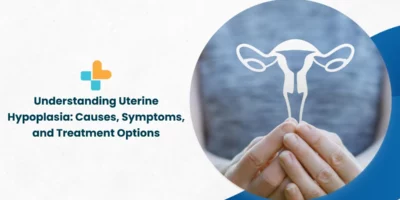Although menstrual health has received increased attention in the recent decade, there is still much more to be done. 71% of adolescent girls in India are unaware of menstruation until their first period, which means they are also unaware of the health problems associated with irregular and painful periods.
Identification of abnormal menstrual patterns in adolescence can improve the chances of detection of potential health concerns. In light of this, in this blog, we will be talking about the times during a woman’s cycle when she experiences bleeding that isn’t quite a period ? spotting.
So what is spotting, and how is it different from a period?
Period versus spotting
Spotting: Light vaginal bleeding that occurs outside of a typical menstrual period is known as spotting. Spotting is usually harmless, but it can potentially signify a health concern.
Period: A period happens because of changes in hormones in the body. It is a part of the menstrual cycle, and a woman bleeds from her vagina for a few days once every month.
Spotting can happen at any point during your cycle. Here’s what you need to know if you’re unsure about the difference between spotting and your actual period.
Signs and Symptoms
Although spotting and periods both appear to be vaginal bleeding, there are a few major distinctions:
Symptoms of a period
Most women experience periods with heavy bleeding and other symptoms like:
- Moodiness
- Food cravings
- Bloating
- Cramps in the abdomen, pelvis and lower back
- Sore breasts
- Fatigue
Symptoms of spotting
Spotting, which can be red or brown in colour, occurs when you do not have your regular period. Spotting may not have any symptoms, but if it is caused by a medical condition, you may experience additional symptoms such as:
- Nausea
- Unusual discharge
- Missed period
- Itchy vagina
- Pain during urination
- Pain in your pelvis or abdomen
A period occurs because of the shedding of your uterine lining, but the causes of spotting can be many.

Causes of Spotting
As mentioned earlier, spotting can be normal and nothing to worry about. But it can also be an indication of other underlying health conditions like ?
Uterine fibroids
They are non-cancerous growths of the uterus and may not show symptoms most times. The cause of these fibroids isn’t well established, but it is seen in women with a family history of fibroids, obesity, or early onset of puberty. The symptoms specific to fibroids include urinary issues, lower back pain, pelvic pain, pain during intercourse, etc.
Birth control pills
Birth control pills and other hormonal contraceptive methods can have negative side effects. Spotting, often known as breakthrough bleeding, is one of these side effects. This is particularly prevalent in the first few months after starting a new hormonal birth control method. In this case, the spotting should come to an end after a certain time.
Ovulation bleeding
An egg is released from your fallopian tubes during ovulation, which occurs in the middle of your menstrual cycle. During this time, some women may experience spotting. Note that this is not a health issue and not a cause for concern.
Implantation bleeding
When the embryo attaches itself to the uterine wall after fertilisation, some blood vessels may break down, resulting in spotting. By taking a pregnancy test a few days after you first notice the bleeding, you can easily tell the difference between period bleeding and pregnant bleeding.
Injuries
Spotting can be caused by genital injuries. Cuts, bruises, lacerations, and other genital injuries or trauma are some examples. Spotting can also be caused by straddle injuries. These injuries occur when a person falls and hurts their crotch area because of a fence, bike, or playground equipment.
STD (Sexually Transmitted Diseases)
Some STDs, like chlamydia, can cause spotting. Other symptoms accompanying spotting due to a STD include bumps and sore genitals, pain in the lower abdomen, pain during sex, pain during urination, etc.
Miscarriage
Bleeding from the vaginal area is the most prevalent sign of a miscarriage. This type of bleeding can range from minor spotting and brown discharge to significant bleeding and clots. This is something that can come and go.
In conclusion, spotting accompanied by concerning symptoms definitely warrants a visit to the doctor. Visit the best hospital in Bangalore for maternity care, Ayu Health, for thorough diagnosis and treatment. Our in-house gynaecologists are some of the best in the industry. Equipped with cutting-edge equipment and approved by NABH, India’s most prestigious hospital accreditation authority, we can assure you quality treatments.
If you are looking for a renowned gynaecologist in India who can provide you with appropriate information about spotting concerns and complications, call +91 – 6366 100 800 or visit our website to book an appointment.
Our Hospital Locations
Gynaecology Surgery Hospitals in Chandigarh | Gynaecology Surgery Hospitals in Bangalore | Gynaecology Surgery Hospitals in Jaipur | Gynaecology Surgery Hospitals in NCR | Gynaecology Surgery Hospitals in Hyderabad
Our Doctors
Gynaecology Surgery Doctors in Chandigarh | Gynaecology Surgery Doctors in Bangalore | Gynaecology Surgery Doctors in Jaipur | Gynaecology Surgery Doctors in NCR | Gynaecology Surgery Doctors in Hyderabad




